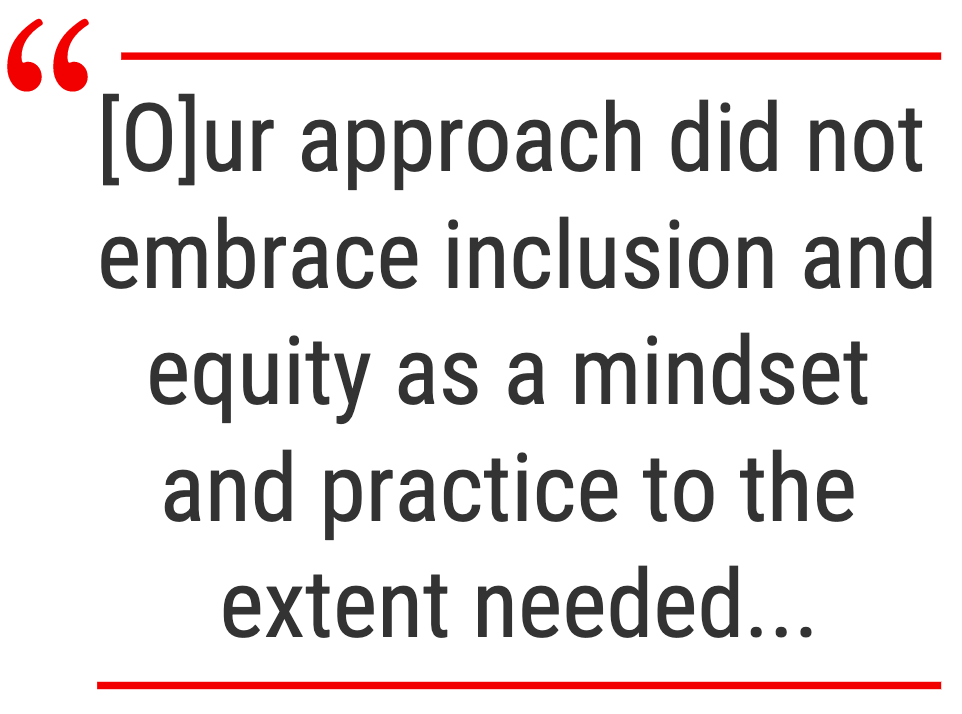
William Jewell College is overhauling its incoming student orientation mentor program for fall 2020 as part of Jewell’s radical inclusivity efforts and the College’s response to COVID-19. The changes to the mentor program include the dissolution of the student leadership team and the inclusion of virtual diversity, COVID-19 and social media training activities to be undertaken in the weeks leading up to orientation.
In past years the orientation program was made up of an orientation director, orientation advisors and incoming student mentors. This year the program is eliminating the roles of the leadership team, which is composed of the orientation director and advisors. Those on the leadership team will now be mentors, and the program will not have the same structured hierarchy.
Rather than having the leadership team, the orientation program will increase the involvement of staff members. Student life staff will now assume responsibility for all aspects of orientation – including the Jewell orientation social media pages. By reassigning those in leadership positions, more mentors will be available to interact with incoming students, account for increased enrollment and navigate newly online aspects of orientation.

Shelly King, dean of students, described student life’s motivations for making the necessary changes by sharing a portion of an email sent to mentors July 1.
“As we reflected on how we prepare for our new students, we identified significant gaps in our approach, the training provided mentors and the foci of Orientation. Therefore, we decided to completely revise our Orientation Program,” the email said. “One element influencing our approach is COVID-19, so we are making changes to be sure we are working within the strategic framework outlined in the email sent to you on June 26.”
“Another important element is acknowledgement that our approach did not embrace inclusion and equity as a mindset and practice to the extent needed, so we are increasing our focus on the education and practice of equity and inclusion, as mentors we believe this will help better prepare you to welcome our new students and cultivate their sense of belonging to the Jewell Community,” the email continued.
Of the mentors in the 2020 orientation program, 100 percent identify as white, while 30 percent of the incoming first-year class and 56 percent of transfer students identify as non-white. This significant disparity contributed to recognizing the program’s failure to be sufficiently inclusive and equitable.
Members of the leadership team and mentors for fall 2020 orientation were notified of the changes in early July and were given the option whether to remain with the program.
“We started with 31 mentors and six students on the leadership team, including the director. One mentor decided not to return to Jewell so that takes us to 30 mentors. We now have 24 mentors, including two students that were on the leadership team. Eight mentors did not return so we retained 73% of our mentors. Two students from the leadership team are now mentors so we retained 33%. The other four students from the leadership team are no longer involved with Orientation,” King said.
All mentors will now be required to participate in an online educational program – beginning July 9 – to increase their preparation for welcoming incoming students.
The program will consist of staff-led weekly activities – some synchronous and some asynchronous – totaling in between one to two hours of commitment per week through July and August. This process of staff-led training differs from previous years of mentor training – which were led by the student leadership teams and took place in two days in August.
The weekly activities and meetings will focus on social media, creating a sense of belonging, COVID-19 training, understanding the role of a mentor, diversity and inclusion, anti-racism and generally preparing for orientation in the time of COVID-19. All mentors will also be required to take the Intercultural Development Inventory (IDI) survey and participate in a process of reflection upon their results.
Mentors will be required to take an anti-racist training course from the Diversity and Resiliency Institute of El Paso. This training consists of six total hours of content divided into three different modules.
Mentors will be given a stipend for completing all required training. Failure to complete the programs – including taking the IDI, debriefing on the IDI and completing the anti-racism training course to receive a certificate – will result in a mentor forfeiting this stipend and their role as a mentor.
King says she hopes to keep all educational components of the mentor program in future years. She notes they may be presented differently in the future in the absence of a pandemic, but any such decisions would be made later in the academic year.
“We believe restructuring will enhance our ability to engage more directly with our new students, while still drawing on the talents of students in the Mentor Program, and creating new opportunities for mentors to understand and become enthusiastic about our diversity and inclusion emphasis and initiatives,” stated the July 1 email to mentors.
King discussed the new programming for mentors and future plans for additional changes.
“During the interview process, each candidate was asked if they would stay in touch with their mentees during the first semester. Everyone said yes so that is still an expectation that will not change. As for specific programming that is new after Orientation, we will have mentors encourage our new students to attend the Student Radical Inclusivity Workshop in the fall. We may add another programming event for mentors but that has not yet been decided,” King said.
Incoming students from underrepresented backgrounds may also participate in the Shape Your Future program. Through this program, older student guides aid those incoming students’ transition to Jewell. These guides were invited to participate in the program because they are BIPOC, from disadvantaged socioeconomic backgrounds or otherwise are underrepresented in higher education. This program will ensure the diverse incoming class will interact with similarly diverse returning students. Look for a Hilltop Monitor article on the inaugural program soon.
